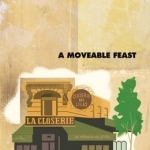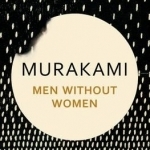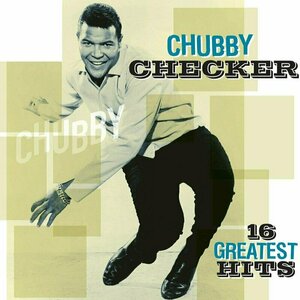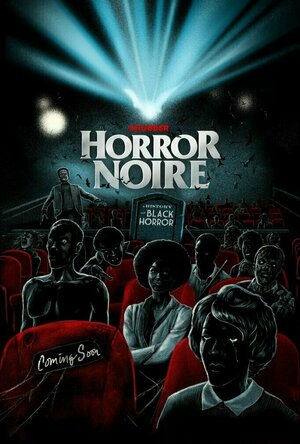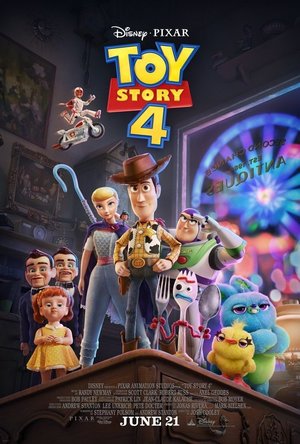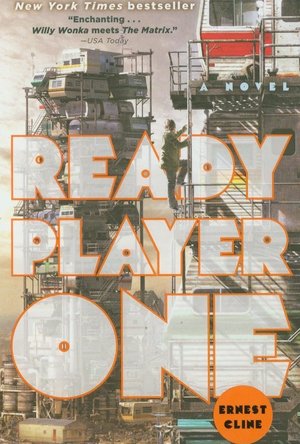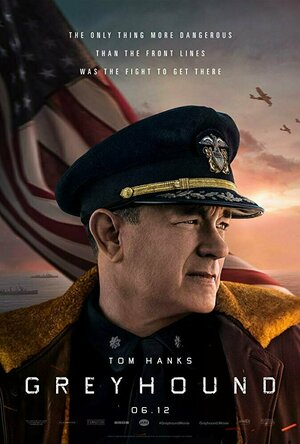Search
Search results
John Krasinski recommended A Moveable Feast in Books (curated)
Suswatibasu (1703 KP) rated Men Without Women: Stories in Books
Jul 24, 2017
Modern day Hemingway without the tangential narratives
Taking the title from the original Ernest Hemingway novel, Haruki Murakami has updated it for a modern audience in different parts of the world, primarily Japan.
It is a series of portraits of men who have chosen the path of loneliness away from women and the void that it creates when running away from intimacy. Beautiful, simplistic with a wonderful flow, Murakami has a spectacular way of building characters and their anecdotal narratives.
It is a series of portraits of men who have chosen the path of loneliness away from women and the void that it creates when running away from intimacy. Beautiful, simplistic with a wonderful flow, Murakami has a spectacular way of building characters and their anecdotal narratives.
Gene Simmons recommended Chubby Checker's Greatest Hits by Chubby Checker in Music (curated)
LeftSideCut (3776 KP) rated Horror Noire: A History of Black Horror (2019) in Movies
Sep 21, 2020
I found Horror Noire, a documentary that focuses on the role and impact of black creators and actors within horror cinema, to be an incredibly insightful watch.
It's covers a wide range of media, from 40s originals like I Walked with a Zombie, all the way up to present day entries like Us, and everything in between. My only criticism stems from this actually - with so many movies to cover, the pacing moves quite quickly, and results in a fairly short feature - I could have happily watched a few more hours!
The documentary features interviews with some genre icons such as Tony Todd, Keith David, Ernest R. Dickerson, Jordan Peele, Rachel True, Tananarive Due, just to name a few!
Listening to them talk about this subject which such fondness is wholesome, but not always comfortable - whereas Horror Noire is of course a celebration of black horror, none of the cast shy away from talking about the difficulties faced by the black community in film, including how they are portrayed, especially in earlier decades.
In 2020, these issues ring truer than ever.
As a white male, the biggest thing I've learned through recent events is that it's not enough to be not racist, - it's important and essential to be actively anti-racist. As a fan of horror for a lot of my life, I, perhaps ignorantly, haven't really attributed these issues to the genre before, so it's refreshing for me to learn about these kind of things and take them on board.
Horror Noire is a truly interesting watch, and has given me some films to add to my watchlist (Ganja & Hess is one I'll be checking out pretty soon). It's eye opening, and certainly deserves attention.
It's covers a wide range of media, from 40s originals like I Walked with a Zombie, all the way up to present day entries like Us, and everything in between. My only criticism stems from this actually - with so many movies to cover, the pacing moves quite quickly, and results in a fairly short feature - I could have happily watched a few more hours!
The documentary features interviews with some genre icons such as Tony Todd, Keith David, Ernest R. Dickerson, Jordan Peele, Rachel True, Tananarive Due, just to name a few!
Listening to them talk about this subject which such fondness is wholesome, but not always comfortable - whereas Horror Noire is of course a celebration of black horror, none of the cast shy away from talking about the difficulties faced by the black community in film, including how they are portrayed, especially in earlier decades.
In 2020, these issues ring truer than ever.
As a white male, the biggest thing I've learned through recent events is that it's not enough to be not racist, - it's important and essential to be actively anti-racist. As a fan of horror for a lot of my life, I, perhaps ignorantly, haven't really attributed these issues to the genre before, so it's refreshing for me to learn about these kind of things and take them on board.
Horror Noire is a truly interesting watch, and has given me some films to add to my watchlist (Ganja & Hess is one I'll be checking out pretty soon). It's eye opening, and certainly deserves attention.
MasterSolace (19 KP) rated Toy Story 4 (2019) in Movies
Jun 30, 2019
Pixar animation on point. (3 more)
All the familiar... voices?
Great story, as always(suck it Illumination)
You WILL cry
Expected... unexpected jump scare is expected. (1 more)
You WILL cry
The Necessary Unnecessary Sequel
Contains spoilers, click to show
Here is Toy Story 4. When you thought it was all over with Toy Story 3, how in the hell did we need this one. Well... lemme tell you... we did.
Quick recap, what happened at the end of Toy Story 3? Andy went off to college, and gave ALL of his toys to a little girl named Bonnie. That was it.
But was it?
So why was this story necessary? Without telling you EXACTLY how the movie goes...... what happens with toys when they go to a new owner? How about the idea of toys that are unwanted? And what about defective toys? Or those that are sitting on the shelf of an antique shop?
It also tackles the mystery of what happened to Bo Peep. Great to tie up that one loose end.
And then we come to Forkie. The "toy" that Bonnie made her first day of kindergarten. It's a spork. With pipe cleaner, popsicle stick, and googly eyes. In a parallel from the first movie, Buzz thought he was the REAL Buzz, and Woody has to help him realize he is a toy...... well... Forkie thinks he is trash... and Woody has to explain to him that he is a toy. Weird, but satisfying. And dammit... Trash!!!!
Watching this movie, made me miss Jim Varney. If you don't know who that is, lemme find an Ernest DVD box for ya, and I slap you with it. Also. Rest In Potatohead Parts, Don Rickles.
Last note... Toy Story 4 is another example of amazing animation AND story. Illumination Studios can't grasp that yet.
If you haven't seen it, go see it. Not like a "maybe you should". No... go see it.
Take some Kleenex
Quick recap, what happened at the end of Toy Story 3? Andy went off to college, and gave ALL of his toys to a little girl named Bonnie. That was it.
But was it?
So why was this story necessary? Without telling you EXACTLY how the movie goes...... what happens with toys when they go to a new owner? How about the idea of toys that are unwanted? And what about defective toys? Or those that are sitting on the shelf of an antique shop?
It also tackles the mystery of what happened to Bo Peep. Great to tie up that one loose end.
And then we come to Forkie. The "toy" that Bonnie made her first day of kindergarten. It's a spork. With pipe cleaner, popsicle stick, and googly eyes. In a parallel from the first movie, Buzz thought he was the REAL Buzz, and Woody has to help him realize he is a toy...... well... Forkie thinks he is trash... and Woody has to explain to him that he is a toy. Weird, but satisfying. And dammit... Trash!!!!
Watching this movie, made me miss Jim Varney. If you don't know who that is, lemme find an Ernest DVD box for ya, and I slap you with it. Also. Rest In Potatohead Parts, Don Rickles.
Last note... Toy Story 4 is another example of amazing animation AND story. Illumination Studios can't grasp that yet.
If you haven't seen it, go see it. Not like a "maybe you should". No... go see it.
Take some Kleenex
Chris Byers (4 KP) rated Ready Player One in Books
Mar 14, 2018
Great action (3 more)
Cool references
Engaging
Solid detail and character development
Some anti-Christian sentiment (1 more)
What happens after the ending- would love follow up info
A Christian Review Of Ready Player One
I just finished another entertaining romp into the fictional realm with Ernest Cline's, Ready Player One. This was particularly engaging for a former/current video gamer like myself. It also provided a setting that I feel is a potentially realistic outcome of our current technology boom and humanist outlook in society.
The plot centers around Wade and the online game OASIS. The OASIS has expanded such that nearly everyone in society is constantly jacked into the system, neglecting real-life in favor of virtual fantasy and role playing. The OASIS gives users the ability to level up a character (Similar to an MMO like World of Warcraft), and interact virtually with other "Avatars."
The sad reality is that the real world has become a shell of its former self after multiple wars, and no one really seems to mind as they are constantly jacked into the fantasy world of the OASIS.
The OASIS creator dies and leaves his money (multi-billion) to whomever can solve a set of obscure puzzles built into the OASIS, all linked to 1980s trivia.
While it sounds odd on the surface, the first-person narration style gives the feel that you are actually a part of this new reality. The descriptions of the game and Avatar functions are well done.
Spiritually, just like the Hunger Games Trilogy, it is lacking. In what I am calling post-apocalypic humanism, the world is obviously very anti-religion/Christianity in this setting.
My theory would be that the humanistic views that are permeating our society currently eventually led to the decline in civilization as man was not accountable to anyone but himself, and the world suffered for it.
It is clear from the beginning that the protagonist, Wade, has never believed in God (though his friendly neighbor is described as a Christian who spends time logged into the OASIS at a virtual church, worshipping). The way that this is expressed comes across much like the way humanists and atheists of our day express it. With much distaste and an inferior view of God. God is compared to the Easter Bunny and other childhood fantasies, and the characters in the book do not seek any higher power. Still Wade is not an entirely unlikable character, even in light of his lack of faith, and this mindset is not prominently mentioned enough to detract from the book as a whole. Christians will likely feel pity for the characters whose mere existence has no meaning.
For Christians, we know that through our relationship with Christ, this life has meaning, and we have a purpose. There is no randomness, but rather a carefully orchestrated plan for each of us by a God who loves us and longs for us to be with him eternally.
A post-apocalypic world viewed through Christian eyes would be much less dystopian, so I imagine that is why authors in this category of fiction stray from God when possible. It adds to the bleak outlook of characters whose only purpose is living day to day, and trying to get along with one another.
I think Christians who read this type of literature should be aware that it is far from the truth that we know in Christ Jesus. When we see the world through only human eyes, and every man does what is right in his own eyes, we can only expect such a derelict society to be the result.
Ready Player One is an entertaining, albeit bleak story with solid detail and character development. Most Christians can skip this one, but for any gamers or fans of the 1980s out there it could provide a good fiction read.
Discussion Questions for Christians:
Does our society seem to be heading down a path that would lead to this type of world?
How would the worldview in the book be different if the main characters had a focus on Christ?
Can a protagonist that is not Christian, but a "decent guy" be a good role model for us?
Would living in a virtual world the majority of the time give us a distorted view of reality?
The plot centers around Wade and the online game OASIS. The OASIS has expanded such that nearly everyone in society is constantly jacked into the system, neglecting real-life in favor of virtual fantasy and role playing. The OASIS gives users the ability to level up a character (Similar to an MMO like World of Warcraft), and interact virtually with other "Avatars."
The sad reality is that the real world has become a shell of its former self after multiple wars, and no one really seems to mind as they are constantly jacked into the fantasy world of the OASIS.
The OASIS creator dies and leaves his money (multi-billion) to whomever can solve a set of obscure puzzles built into the OASIS, all linked to 1980s trivia.
While it sounds odd on the surface, the first-person narration style gives the feel that you are actually a part of this new reality. The descriptions of the game and Avatar functions are well done.
Spiritually, just like the Hunger Games Trilogy, it is lacking. In what I am calling post-apocalypic humanism, the world is obviously very anti-religion/Christianity in this setting.
My theory would be that the humanistic views that are permeating our society currently eventually led to the decline in civilization as man was not accountable to anyone but himself, and the world suffered for it.
It is clear from the beginning that the protagonist, Wade, has never believed in God (though his friendly neighbor is described as a Christian who spends time logged into the OASIS at a virtual church, worshipping). The way that this is expressed comes across much like the way humanists and atheists of our day express it. With much distaste and an inferior view of God. God is compared to the Easter Bunny and other childhood fantasies, and the characters in the book do not seek any higher power. Still Wade is not an entirely unlikable character, even in light of his lack of faith, and this mindset is not prominently mentioned enough to detract from the book as a whole. Christians will likely feel pity for the characters whose mere existence has no meaning.
For Christians, we know that through our relationship with Christ, this life has meaning, and we have a purpose. There is no randomness, but rather a carefully orchestrated plan for each of us by a God who loves us and longs for us to be with him eternally.
A post-apocalypic world viewed through Christian eyes would be much less dystopian, so I imagine that is why authors in this category of fiction stray from God when possible. It adds to the bleak outlook of characters whose only purpose is living day to day, and trying to get along with one another.
I think Christians who read this type of literature should be aware that it is far from the truth that we know in Christ Jesus. When we see the world through only human eyes, and every man does what is right in his own eyes, we can only expect such a derelict society to be the result.
Ready Player One is an entertaining, albeit bleak story with solid detail and character development. Most Christians can skip this one, but for any gamers or fans of the 1980s out there it could provide a good fiction read.
Discussion Questions for Christians:
Does our society seem to be heading down a path that would lead to this type of world?
How would the worldview in the book be different if the main characters had a focus on Christ?
Can a protagonist that is not Christian, but a "decent guy" be a good role model for us?
Would living in a virtual world the majority of the time give us a distorted view of reality?
BankofMarquis (1832 KP) rated Greyhound (2020) in Movies
Mar 11, 2021
Hanks Does It Again
Tom Hanks interest in the men who fought in WWII is well known. From his starring role as Capt. Miller is what is (arguably) the definitive film about D-Day, SAVING PRIVATE RYAN, to his Executive Producing role in, arguably, the best mini-series ever produced about WWII, BAND OF BROTHERS, Hanks has brought a face to the nameless heroes who fought in the middle of the last century.
Add his latest film GREYHOUND, to the list of films that brings a face to a heretofore unknown (at least to me) group of heroes.
Based on the book THE GOOD SHEPHERD by C.S. Forester and adapted for the screen by Hanks himself, GREYHOUND tells the story of a Commander of a U.S. Navy escort ship, helping cargo ships cross the Atlantic Ocean - an Ocean filled with enemy submarines.
Hanks, of course, plays Commander Ernest Krause, Captain of the USS Keeling, code named “Greyhound”, who is on his first mission. As one might imagine, Hanks imbues Krause with a common decency and you inherently trust Krause’s instincts as he makes split second decision after split second decision. What surprised me about Hanks in this role is his “steely resolve” in dealing with the problems. You can see his brain working as he makes pragmatic decision after pragmatic decision - sometimes not the most “human” decisions - but the right decisions after all.
This is both the strength and the problem with this film - Hanks’ character is NEVER wrong, so after awhile, the tension on the Bridge with Capt. Krause being questioned on his decisions, is never really there.
But, that is a “nit” in this film for Director Aaron Schneider has constructed a taunt and tight thriller that is non-stop action from start to finish. He wisely decided to keep the film at a tight 90 minutes and keep the action flying (versus putting in a couple of “character building scenes” that could have stretched the runtime). He does shoehorn in a flashback scene between Krause and his lady love (played by Elisabeth Shue), a scene that is not really needed, but besides this he focuses his attention on the Greyhound and it’s mission and this is a smart move that the film benefits from.
Director Schneider relies, heavily, on the Special F/X recreating the Atlantic sea battles and, for the most part, it succeeds. BUT…from time-to-time I felt like I was watching a video game - and not a film. The F/X (at times) was just not feature film quality that drew me away from the emotion and the action on the screen.
With the Global Pandemic, this film’s theatrical release was cancelled and it was put on Apple TV+(where you can find it today), so I can forgive the lower F/X results…but just a little.
All-in-all a fun thrill ride, with a terrific central performance, in a film that shows an aspect of WWII I had not previously scene portrayed on film before.
Letter Grade: A-
8 stars (out of 10) and you can take that to the Bank(ofMarquis)
Add his latest film GREYHOUND, to the list of films that brings a face to a heretofore unknown (at least to me) group of heroes.
Based on the book THE GOOD SHEPHERD by C.S. Forester and adapted for the screen by Hanks himself, GREYHOUND tells the story of a Commander of a U.S. Navy escort ship, helping cargo ships cross the Atlantic Ocean - an Ocean filled with enemy submarines.
Hanks, of course, plays Commander Ernest Krause, Captain of the USS Keeling, code named “Greyhound”, who is on his first mission. As one might imagine, Hanks imbues Krause with a common decency and you inherently trust Krause’s instincts as he makes split second decision after split second decision. What surprised me about Hanks in this role is his “steely resolve” in dealing with the problems. You can see his brain working as he makes pragmatic decision after pragmatic decision - sometimes not the most “human” decisions - but the right decisions after all.
This is both the strength and the problem with this film - Hanks’ character is NEVER wrong, so after awhile, the tension on the Bridge with Capt. Krause being questioned on his decisions, is never really there.
But, that is a “nit” in this film for Director Aaron Schneider has constructed a taunt and tight thriller that is non-stop action from start to finish. He wisely decided to keep the film at a tight 90 minutes and keep the action flying (versus putting in a couple of “character building scenes” that could have stretched the runtime). He does shoehorn in a flashback scene between Krause and his lady love (played by Elisabeth Shue), a scene that is not really needed, but besides this he focuses his attention on the Greyhound and it’s mission and this is a smart move that the film benefits from.
Director Schneider relies, heavily, on the Special F/X recreating the Atlantic sea battles and, for the most part, it succeeds. BUT…from time-to-time I felt like I was watching a video game - and not a film. The F/X (at times) was just not feature film quality that drew me away from the emotion and the action on the screen.
With the Global Pandemic, this film’s theatrical release was cancelled and it was put on Apple TV+(where you can find it today), so I can forgive the lower F/X results…but just a little.
All-in-all a fun thrill ride, with a terrific central performance, in a film that shows an aspect of WWII I had not previously scene portrayed on film before.
Letter Grade: A-
8 stars (out of 10) and you can take that to the Bank(ofMarquis)
Hazel (1853 KP) rated The Ice-Cream Makers in Books
Dec 14, 2018
<i>I received this book for free through Goodreads First Reads.</i>
An intriguing blurb promises an incredible story about an Italian ice-cream making family, however the story is nothing like you expect. Ernest van der Kwast’s <i>The Ice-Cream Makers</i> is set between a small village in Italy and the busy summer streets of Rotterdam. The Talamini family has been creating innovative ice-cream flavours for over a century, running a successful and hard-working parlour in the Netherlands. The business is handed down from father to son throughout the years, but now eldest son Giovanni has broken the tradition.
Giovanni Talamini has no interest in making ice-cream and would much rather spend the day reading poetry. After pursuing a literary career, Giovanni is now the director of the World Poetry Festival. Younger brother Luca has been left to pick up the <i>spatula</i> of the family business, but he has a problem of his own. Giovanni faces a dilemma: cut himself of from his family entirely or help his brother out with his peculiar request.
The highly unusual request mentioned in the blurb of <i>The Ice-Cream Makers</i> does not actually surface until the latter stages of the book. For the majority of the narrative there is no clear storyline, however the detail and information van der Kwast provides about ice-cream making, poetry and European culture makes the novel entirely worth reading. The request itself is entirely unexpected and not at all possible to guess, but it is an oddly brilliant way of reuniting two estranged brothers.
It takes a while for the narrative to start flowing as it constantly changes time periods. Giovanni, the narrator, rarely speaks in the present tense and is constantly relating events from his childhood and adulthood interspersed with family history and historical knowledge. On occasion the book takes on the air of an autobiography as Giovanni gives an in depth insight to the life of his family and his break from tradition. There is also the odd chapter that becomes almost a work of non-fiction, providing the reader with highbrow literary references and factual information about the history of ice-cream.
Once the scenes caused by the male sexual mind have been glossed over, <i>The Ice-Cream Makers</i> becomes a beautifully written, almost poetical story that compels and engages the reader despite the lack of a clear-cut storyline. The literary references will appeal to the intellectual, scholar, philosopher or culture enthusiast, for this novel teaches and inspires as well as entertains.
The amount of research van der Kwast conducted is phenomenal. The accuracy (or so is presumed) of the historical factors implies the author had thoroughly investigated the subject matter prior to writing. It is almost as though van der Kwast lived the life of Giovanni; it is entirely believable – hence the sense of an autobiography. Although the nature of the novel’s theme suggests a serious tone, van der Kwast has included a great deal of humour in the form of Giovanni and Luca’s father and his questionable mental health.
The lack of a climax prevents <i>The Ice-Cream Makers</i> from being described as an exciting book, however its beautifully poetic prose makes up for this absence. The philosophical insight into poetry will make you think about life and admire Giovanni for insisting on making his own way in the world. Likewise, Luca’s quiet acceptance and perseverance in the family business is also an admirable feat. Readers with a dislike for descriptive sexual scenarios may feel uncomfortable in a few of the resulting scenes, however the general story compensates for these distasteful passages. All in all, a high-quality work of fiction.
An intriguing blurb promises an incredible story about an Italian ice-cream making family, however the story is nothing like you expect. Ernest van der Kwast’s <i>The Ice-Cream Makers</i> is set between a small village in Italy and the busy summer streets of Rotterdam. The Talamini family has been creating innovative ice-cream flavours for over a century, running a successful and hard-working parlour in the Netherlands. The business is handed down from father to son throughout the years, but now eldest son Giovanni has broken the tradition.
Giovanni Talamini has no interest in making ice-cream and would much rather spend the day reading poetry. After pursuing a literary career, Giovanni is now the director of the World Poetry Festival. Younger brother Luca has been left to pick up the <i>spatula</i> of the family business, but he has a problem of his own. Giovanni faces a dilemma: cut himself of from his family entirely or help his brother out with his peculiar request.
The highly unusual request mentioned in the blurb of <i>The Ice-Cream Makers</i> does not actually surface until the latter stages of the book. For the majority of the narrative there is no clear storyline, however the detail and information van der Kwast provides about ice-cream making, poetry and European culture makes the novel entirely worth reading. The request itself is entirely unexpected and not at all possible to guess, but it is an oddly brilliant way of reuniting two estranged brothers.
It takes a while for the narrative to start flowing as it constantly changes time periods. Giovanni, the narrator, rarely speaks in the present tense and is constantly relating events from his childhood and adulthood interspersed with family history and historical knowledge. On occasion the book takes on the air of an autobiography as Giovanni gives an in depth insight to the life of his family and his break from tradition. There is also the odd chapter that becomes almost a work of non-fiction, providing the reader with highbrow literary references and factual information about the history of ice-cream.
Once the scenes caused by the male sexual mind have been glossed over, <i>The Ice-Cream Makers</i> becomes a beautifully written, almost poetical story that compels and engages the reader despite the lack of a clear-cut storyline. The literary references will appeal to the intellectual, scholar, philosopher or culture enthusiast, for this novel teaches and inspires as well as entertains.
The amount of research van der Kwast conducted is phenomenal. The accuracy (or so is presumed) of the historical factors implies the author had thoroughly investigated the subject matter prior to writing. It is almost as though van der Kwast lived the life of Giovanni; it is entirely believable – hence the sense of an autobiography. Although the nature of the novel’s theme suggests a serious tone, van der Kwast has included a great deal of humour in the form of Giovanni and Luca’s father and his questionable mental health.
The lack of a climax prevents <i>The Ice-Cream Makers</i> from being described as an exciting book, however its beautifully poetic prose makes up for this absence. The philosophical insight into poetry will make you think about life and admire Giovanni for insisting on making his own way in the world. Likewise, Luca’s quiet acceptance and perseverance in the family business is also an admirable feat. Readers with a dislike for descriptive sexual scenarios may feel uncomfortable in a few of the resulting scenes, however the general story compensates for these distasteful passages. All in all, a high-quality work of fiction.
